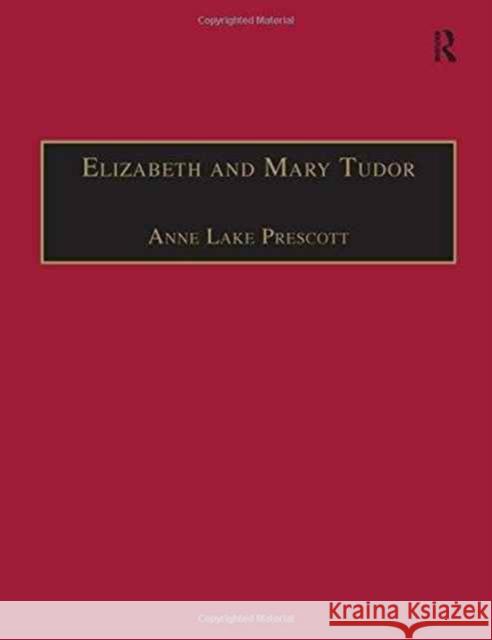Elizabeth and Mary Tudor: Printed Writings 1500-1640: Series I, Part Two, Volume 5 » książka
Elizabeth and Mary Tudor: Printed Writings 1500-1640: Series I, Part Two, Volume 5
ISBN-13: 9781840142181 / Angielski / Twarda / 2001 / 392 str.
The two translators whose printed works are contained in this volume were the daughters of Henry VIII. Whilst they both suffered from their father's changes of wives and faiths, after his marriage in 1543 to Katherine Parr they both benefited from their new stepmother's kindness. In different ways, she was involved in the production of the texts contained in this volume. When Princess Elizabeth was eleven she began to translate Le Mirroir de l'âme pécheresse (1531), a verse meditation by Marguerite of Angoulême, sister of King Francis I of France. The Princess dedicated it to Katherine Parr as a New Year's present in January 1545. It is John Bale's 1548 edition that is reproduced here. Also the c.1568 edition published by Denham which includes a set of prayers by James Cancellar designed to be said by Elizabeth and an acrostic on 'Elizabeth Regina'. At about the same time as Elizabeth was working on her translation, Mary (1515-1558) was likewise helping Katherine Parr reform Tudor devotional life through scripture-based scholarship, literature and translation. The Queen asked her to join a group involved in translating the influential Paraphrases in Novum Testamentum by Desiderius Erasmus. Whilst the true translators of this long Latin text is debated it is thought that Mary was part way through the section of the Gospel of John when illness (or possibly her disagreement Parr's Reformist sympathies) caused her to pass the rest over to her chaplain, Francis Malet. The translations, including Mary's contribution, began to see print in 1548 under the editorship of Richard Grafton. Edward VI's government required all parishes to acquire copies, so that together with various English Bibles and the Book of Common Prayer, the Paraphrases long helped to shape English religious life. We reprint here the entire section of John's gospel from a copy of the 1548 edition including Erasmus' preface to the Archduke Ferdinand of Austria, and a letter, which credits the translation to Mary, from Nicholas Updall to Katherine Parr.











